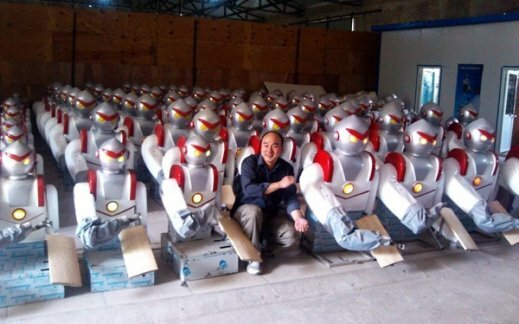By: Carola Pozo Cortez
I am based on a work published by John Maynard Keynes, a British economist, who in 1931 had written "The General Theory of Unemployment, Interest and Money." In this work he said:
Advertisements
"We are affected by a new disease that some readers may not have heard its name yet, but which they will hear a lot about in the immediate future is called"technological unemployment”. This means unemployment due to the discovery according to which the use of the hand of work exceeding the rate at which we can find new alternative uses for all this labor of construction site".
The increase in productivity and manufacturing of products faster than the demand for goods and services that was generated caused a depression that many economists dared to claim was the product of the technological revolution of the 1920s (S XX).
Advertisements

In fact, Frederick Engels, had already written in the nineteenth century: “the ever-increasing perfection of modern machinery is... becoming a mandatory law that forces individual industrial capitalists to permanently improve their machines, always with the aim of increasing its production capacity... (but) the size of the markets cannot keep up with this expansion of the production. The collision is inevitable ”.
Advertisements
Information and telecommunications technologies threaten the loss of tens of millions of jobs in many companies and economic sectors in the coming years. Work as it is known until now, will gradually disappear.
The service sector was able to employ, in the mid-1950s and early 1980s (S XX) many of the workers replaced by automation. But today, no significant sector has developed capable of absorbing millions of laid off wage earners. The only one in sight is the of knowledge, an elite of industries and professional disciplines responsible for the introduction into the new high-tech economy of the future. The new professionals, called symbolic analysts or knowledge workers They come from the fields of science, engineering, management, marketing consulting, the media and entertainment.
Advertisements
Although they continue to grow in number, they will remain few compared to the growing number of workers replaced by the new generation of "thinking machines"
Rapid advances in computer technology, online information processing, and artificial intelligence are which will surely cause large numbers of "white collar" workers to lose their jobs in the first decades of this year. century.
Advertisements
www.planetaservicioseducativos.com


